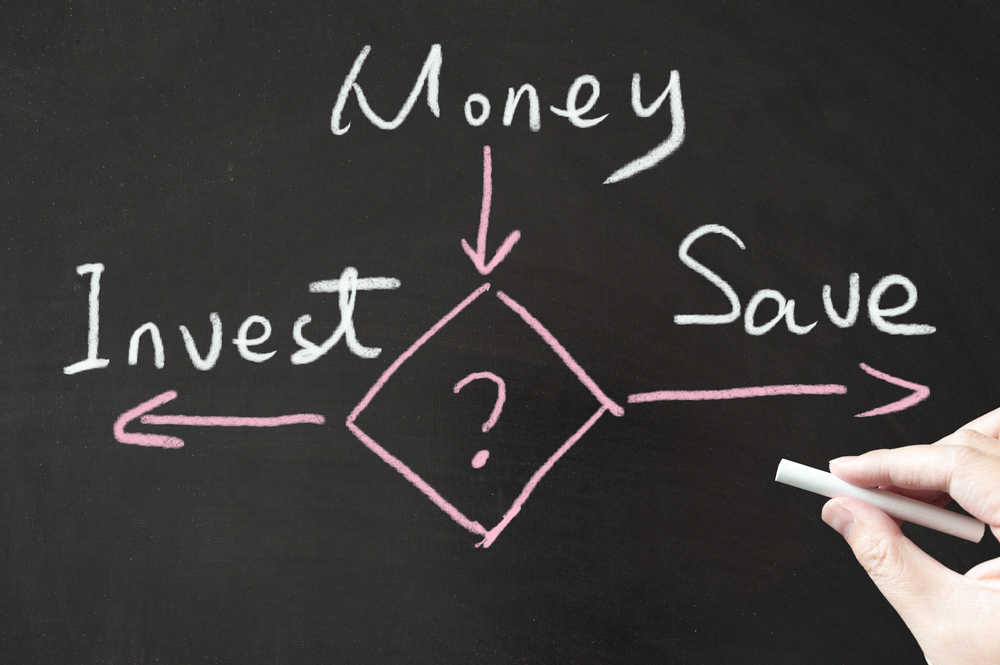Saving or investing – which is best for building your nest egg? Two financial planners provide tips.
23 January 2024 · Fiona Zerbst

Many South Africans keep their savings in a bank account or money market fund, rather than investing in an equity fund, according to Ninety One, a global asset manager. This, their website points out, is largely because of market volatility.
Seeking refuge in cash is understandable, but savers may be sacrificing growth. We ask two experts for their recommendations.
Tip: Find out more about savings and investments. These are crucial to your financial wellbeing.
Saving, and investing in equity markets, serve different purposes. Your financial goals, whether or how quickly you need to access the funds, and your investment (time) horizon, are key factors in determining which of the two options is best for you.
Pieter Nel, an investment specialist at Stanlib, notes that keeping cash in your savings or money market account makes sense if you’re accumulating an emergency fund, or saving up for something specific, such as a deposit for a vehicle within the next two years.
“On the other hand,” Nel says, “if you’re saving for the long term, equity investments typically offer returns that are greater than you could achieve in a bank account.
“Returns will be less predictable,” he notes, “but, in the long term, they’ll be superior.”
Ideally, you should opt for a mix of savings and investments, which can provide you with cash when you need it, but also outperform inflation, Nel advises.
Cash may be attractive when interest rates are high, as you can earn more interest on your deposits, says Wouter de Witt, a certified financial planner at Liberty. However, analysts believe interest rates have reached their peak, he says.
De Witt also warns against trying to “time the market” – or withdrawing and reinvesting funds based on short-term market predictions. “If you miss the best ten days in the market, for example, you could miss out on half of your returns, so understand that investing in equities means investing for the long term,” he says.
He also recommends that you keep contributing to your retirement fund, regardless of any other investments.
“All the money in a retirement vehicle grows, tax-free,” he points out.
Until fairly recently, smaller investors couldn’t access the markets, and had to save up a lump sum to invest. These days, you can choose to invest as little as R200 a month.
“If you invest that amount over ten years, at a return of 12%, you’ll end up with around R45,000,” says Nel.
However, he recommends investing only once you’ve repaid any high-interest debts you may have; and you've established an emergency fund that equals three to six months’ worth of income.
If you don’t have an emergency fund in place, there’s a risk that you’ll be forced to either withdraw from your long-term investments, or take out a loan, should you need to access funds, Nel points out.
Look closely at any investment products you’re considering to avoid being locked into an investment or incurring penalties if you can’t continue with a monthly debit order, he advises.
Nel points out that costs should be appropriate for your investment. He notes, for example, that it doesn’t make sense to earn a 5% return but pay 4% in fees. However, lower fees don’t necessarily equate to a better investment product or outcome, he cautions.
Nel recommends that you examine a variety of products and their returns after deductions, including the platform or trading costs; the cost to invest in a particular product; and financial advice fees, where applicable.
If you opt to invest, speak to an independent financial adviser to determine your risk profile and the asset allocation that makes the most sense for you.
Tip: Our retirement needs calculator will help you determine how much money you’ll require to maintain your lifestyle once you retire.
Free tool

info@justmoney.co.za
4th Floor, Mutual Park, Jan Smuts Drive,
Pinelands, Cape Town, 7405
© Copyright 2009 - 2025
Terms & Conditions
·
Privacy Policy
·
PAIA Manual
View your total debt balance and accounts, get a free debt assessment, apply for a personal loan, and receive unlimited access to a coach – all for FREE with JustMoney.